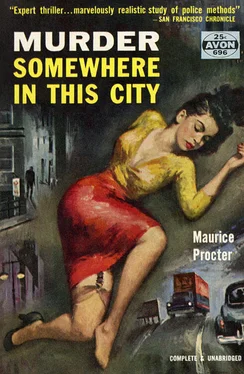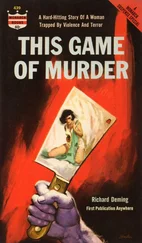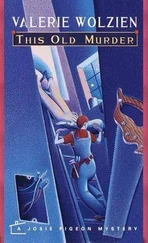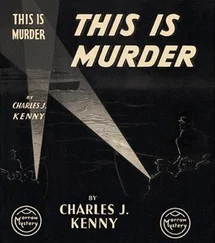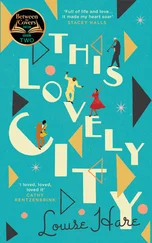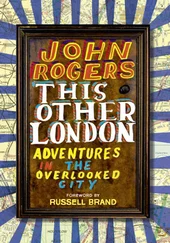Maurice Procter - Murder Somewhere in This City
Здесь есть возможность читать онлайн «Maurice Procter - Murder Somewhere in This City» весь текст электронной книги совершенно бесплатно (целиком полную версию без сокращений). В некоторых случаях можно слушать аудио, скачать через торрент в формате fb2 и присутствует краткое содержание. Год выпуска: 0101, Издательство: Avon, Жанр: Полицейский детектив, на английском языке. Описание произведения, (предисловие) а так же отзывы посетителей доступны на портале библиотеки ЛибКат.
- Название:Murder Somewhere in This City
- Автор:
- Издательство:Avon
- Жанр:
- Год:0101
- ISBN:нет данных
- Рейтинг книги:5 / 5. Голосов: 1
-
Избранное:Добавить в избранное
- Отзывы:
-
Ваша оценка:
- 100
- 1
- 2
- 3
- 4
- 5
Murder Somewhere in This City: краткое содержание, описание и аннотация
Предлагаем к чтению аннотацию, описание, краткое содержание или предисловие (зависит от того, что написал сам автор книги «Murder Somewhere in This City»). Если вы не нашли необходимую информацию о книге — напишите в комментариях, мы постараемся отыскать её.
Murder Somewhere in This City — читать онлайн бесплатно полную книгу (весь текст) целиком
Ниже представлен текст книги, разбитый по страницам. Система сохранения места последней прочитанной страницы, позволяет с удобством читать онлайн бесплатно книгу «Murder Somewhere in This City», без необходимости каждый раз заново искать на чём Вы остановились. Поставьте закладку, и сможете в любой момент перейти на страницу, на которой закончили чтение.
Интервал:
Закладка:
“And since then you’ve been in some pub.”
“Correct,” he said.
“You’ve been working on that murder, I suppose. Have you got anybody for it?”
He shook his head. “Anything for supper?” he asked, not very hopefully.
“There’s your tea, if you want to warm it up,” she said. “Other husbands can ring up their wives and tell them when they’ll be home. Of course, I couldn’t expect you to do that. You couldn’t even phone and tell me you’d be working late. You never come home. Not until you have to.”
He accepted the rebuke. He usually told her when he would be late. But today, when he had remembered that he should tell her, he had been in the middle of wild moorland on his way to Hallam.
He went into the little kitchen and looked at his “tea” in the cold electric oven. Two small lamb chops, some tinned peas, chips. Gravy in a small jug, with a top layer of cold fat like a sheet of ice on water. It would all have been quite nice at teatime. Even now, warmed up, it would be eatable because he was hungry. He closed the oven door and turned the switches. He went back to the living room, which his wife called the dining room. Also she called the front room the lounge, and he could always annoy her by calling it the parlor.
Julia sat upright on the edge of her fireside chair. As he had expected, a copy of Vogue was on the table within her reach. She was an extremely elegant woman, with an infallible taste in clothes. The plain, rather severe dress which she now wore was undeniably smart, and it certainly suited her mood and expression. She was thirty-three years of age, tall, darkhaired, clear-skinned. Her face and neck would have given pleasure to a sculptor. She had a perfectly natural model figure, and such a figure she had always had. It sometimes seemed to Martineau that her figure changed itself according to the demands of fashion. He was sure that her breasts had filled out since voluptuous busts became fashionable. If it became fashionable to be fat, Julia would quite naturally put on weight. If flat chests became the thing again, her breasts would seem to melt away.
“At least,” she said, “one would think you could come home at ten, when you came off duty. You’ve been out of this house since half past seven this morning.”
A girl had been murdered, he thought. Four thousand pounds have been stolen. And behold, I have been out of the house since half past seven this morning. Mercy on us, I didn’t come home to my tea.
“I was weary,” he said. “I needed a drink.”
“You could have had a bottle of beer at home.”
“It isn’t the same.”
“I’m aware of that,” she said. “You’d sooner be in a low pub than at home. With low women sitting around the bar, ready to go with you if you want them.”
“I’ve told you before, you’re all wrong about that,” he said patiently. “I can’t afford to spend my time in that sort of pub. In decent pubs nearly all the women are there with their husbands. They may not come up to your idea of society, but they’re respectable.”
“You didn’t think about me, waiting here,” she said. “You never do.”
Martineau admitted to himself that her last grumble seemed reasonable enough. It seemed so. But was she waiting with love or anxiety? He did not think so. He was beginning to believe that as a husband he was merely a property of some value to her. To women of her type all husbands were a nuisance, with their rough ways and physical demands, but they were a necessary nuisance. According to Julia’s pattern of life a woman had to have a husband, the more successful the better. She had to have a husband to hold her head up in society, and to prevent other women from pitying her.
“It seems to me that my life is all waiting,” she said. “Waiting for you to come in, or go out, or come to bed.”
She hasn’t enough to do, he thought. She ought to have a couple of kids.
His conception of a happy home had always included one or two children. He had married Julia under the delusion that children would arrive in the natural course of events. But from the beginning Julia had quite positively refused to have a child. She had never, at any time, allowed her husband’s love-making to become uninhibited enough to produce one. Their sex life had always been artificial.
Martineau himself did not have a blind fondness for children, nor did he subscribe to the sentimental convention that all children were lovable. He knew that many of them were peevish little horrors who were only loved by their parents and grandparents. Still, a man sometimes met a gruff small boy or a dainty little girl who made him wish for a family of his own.
But Julia thought that life could be complete without children. When her friends’ children were in her house she was all the time on edge, afraid that they would kick the furniture or mark the wallpaper.
“My life’s empty,” she said now. “We never go out together, and you’re never at home. I try to keep this place nice, and you treat it like a doss house.”
It occurred to him that he was having to suffer because she had had an empty evening: no film she wanted to see, no book she wanted to read, nothing she wanted to hear on the radio, nothing to do. Probably she had been playing bridge all the afternoon, but that was a long time ago; seven empty hours ago.
“You haven’t enough to do,” he said.
She looked at him. “You’re not suggesting that I should take a job, are you?”
“No,” he said, “I’m not. If you take a job it’s your own affair. But you want something to do.”
“I’d look nice, the great Inspector Martineau’s wife, hunting for a job.”
“You’re very particular about how things look, aren’t you?” he said. “It’d look all right if you justified your existence by having a baby or two. Your life wouldn’t be empty any more. And we’re both still plenty young enough.”
“Don’t start that again. Why do you always come back to that?” she said. Then she said: “It would be different if I had Mother and Father here. At least I’d have company.”
“No!” he said.
He went into the kitchen and returned with his supper. She watched him sulkily. He picked up the evening paper and glanced at the headlines while he ate, so she got up and banged off to bed without speaking. He said “Good night” but she did not answer. He shrugged and went on with his meal.
After supper he lit a cigarette, and went into the front room. He did not switch on the lights, but he could see fairly well by the light which streamed from the hallway through the open door. He stared through the window for a little while, then he turned to the piano and absently picked out a tune with one hand. He sat down and began to play. Willfully he dropped his cigarette ash just anywhere on the carpet. He did not do it to annoy Julia, but he knew that it would annoy her. Give her something to do, he thought.
There was a sweet little tune which he had heard a youth whistling as he waited for his bus. He called it Hildegarde’s song, after the singer who used it for a signature tune. He played it, softly. He was not a serious pianist, but he played well by ear. Almost everybody liked to hear him play. He played Hildegarde’s song several times, getting it just right, putting his own emphasis where he liked it and letting the words of the part English, part French lyric run through his mind.
Julia knocked on the bedroom floor with the heel of a slipper. He played the tune once more, then got up and went to his own bed. Tomorrow was Sunday, but he had to work on a murder.
He lay in bed and thought about it. He tried to imagine the terror of Cicely Wainwright’s death: crushed down by a heavy knee, among big feet on the dirty floor of an old car. She had been a bonny girl. She would have married and made somebody happy, and had children.
Читать дальшеИнтервал:
Закладка:
Похожие книги на «Murder Somewhere in This City»
Представляем Вашему вниманию похожие книги на «Murder Somewhere in This City» списком для выбора. Мы отобрали схожую по названию и смыслу литературу в надежде предоставить читателям больше вариантов отыскать новые, интересные, ещё непрочитанные произведения.
Обсуждение, отзывы о книге «Murder Somewhere in This City» и просто собственные мнения читателей. Оставьте ваши комментарии, напишите, что Вы думаете о произведении, его смысле или главных героях. Укажите что конкретно понравилось, а что нет, и почему Вы так считаете.
